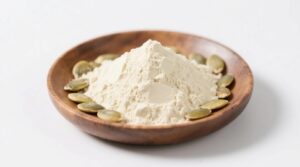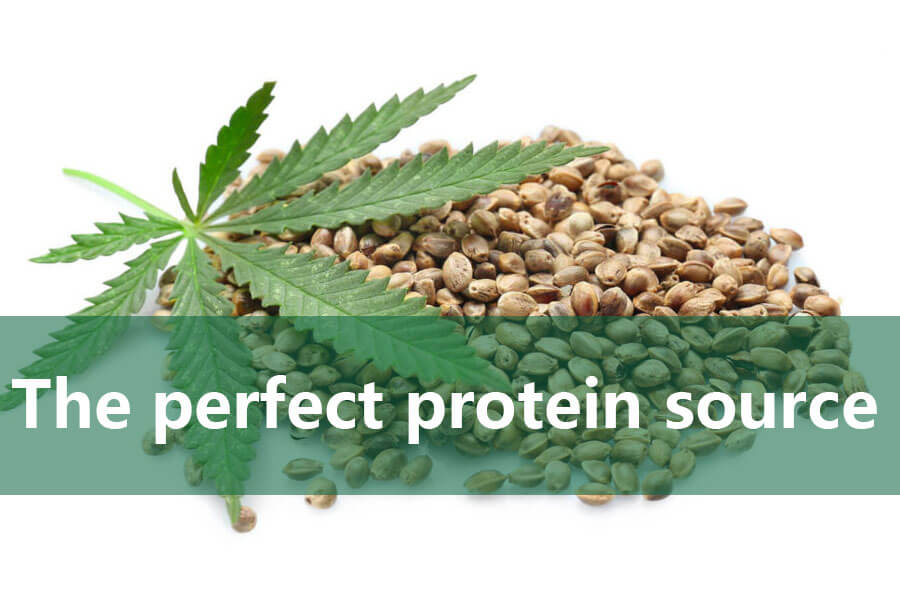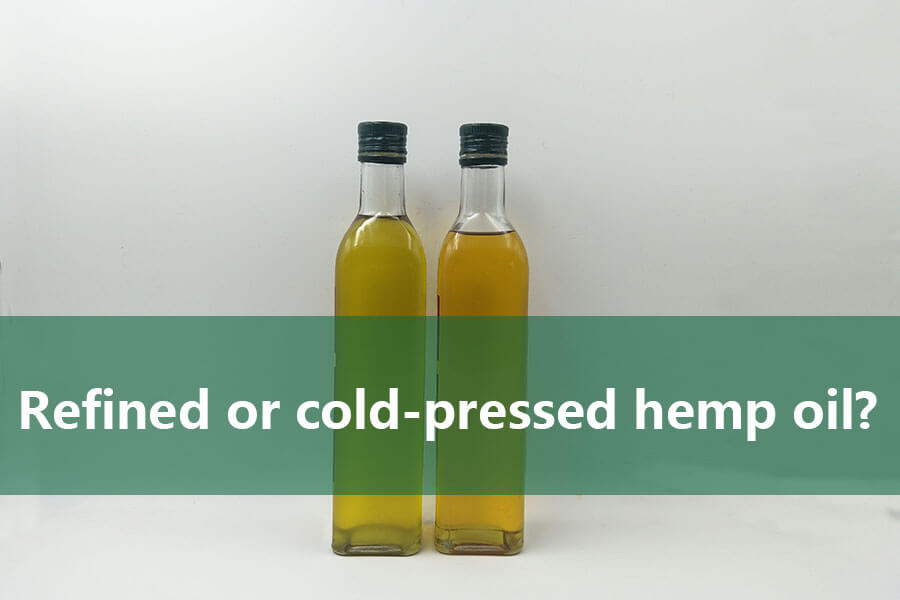The growing demand for plant-based protein has created a diverse marketplace with many natural sources available for food and beverage manufacturers. Among these, organic pumpkin seed protein powder and organic rice protein are two of the most popular options. Both offer clean-label appeal and high nutritional value, but they differ significantly in composition, taste, functionality, and application.
This article explores the key differences between organic pumpkin seed protein powder and rice protein, helping formulators and nutrition brands choose the ideal ingredient for their products.
1. Source and Processing
Organic pumpkin seed protein powder is derived from cold-pressed organic pumpkin seeds (also known as pepitas). The seeds are defatted, finely milled, and dried into a nutrient-rich powder. The process is entirely mechanical, without chemical solvents, preserving the natural minerals and nutrients.
Organic rice protein, on the other hand, is extracted from brown rice through enzymatic hydrolysis, separating the protein from carbohydrates. While this method yields a high protein concentration, it can slightly reduce the natural nutrient diversity found in whole food-based proteins like pumpkin seed.
✅ Pumpkin Seed Protein: Cold-pressed and minimally processed.
✅ Rice Protein: Hydrolyzed extraction with high protein purity.
2. Protein Quality and Amino Acid Profile
When it comes to amino acid composition, pumpkin seed protein offers a more balanced profile of essential amino acids (EAAs) and branched-chain amino acids (BCAAs), which are vital for muscle growth and recovery. It is especially rich in arginine, which promotes blood flow and cardiovascular health.
Rice protein, while high in total protein (around 80–85%), tends to be lower in lysine, making it less ideal as a standalone protein source. However, it pairs well with other plant proteins to create a complete amino acid spectrum.
✅ Pumpkin Seed Protein: Excellent in arginine, magnesium, and BCAAs.
✅ Rice Protein: High overall protein purity, complementary to other plant proteins.
3. Digestibility and Absorption
Organic pumpkin seed protein powder is naturally easy to digest, thanks to its gentle processing and fiber content. It’s free from common allergens such as soy, gluten, and dairy, making it suitable for sensitive consumers and clean-label products.
Rice protein also has good digestibility, though its texture can be slightly chalky, which may require flavoring or blending to improve mouthfeel.
✅ Pumpkin Seed Protein: Mild flavor, smooth texture, gentle on the stomach.
✅ Rice Protein: Neutral flavor but slightly gritty mouthfeel.
4. Functional Performance in Formulations
For food and beverage manufacturers, functional properties like solubility, emulsification, and stability are critical.
- Pumpkin seed protein performs well in RTD beverages, bakery products, nutrition bars, and dairy alternatives. It adds a pleasant, nutty taste and natural color.
- Rice protein is commonly used in powdered supplements, snacks, and protein blends, providing bulk and high protein density.
Pumpkin seed protein’s natural emulsifying capacity gives it an advantage in clean-label beverages where stabilizers are limited.
✅ Pumpkin Seed Protein: Great emulsifier with smooth texture.
✅ Rice Protein: Better for dry blends and protein fortification.
5. Nutritional Benefits Beyond Protein
One of the major distinctions lies in micronutrient content. Organic pumpkin seed protein powder provides a broad range of minerals such as magnesium, zinc, and iron, which support energy metabolism, immunity, and muscle recovery.
Rice protein is relatively lower in minerals but excels in high protein yield, making it efficient for concentrated protein formulations.
✅ Pumpkin Seed Protein: Rich in minerals and antioxidants.
✅ Rice Protein: High purity, excellent for maximizing protein percentage.
6. Clean-Label and Sustainability Factors
Both proteins meet clean-label standards, but organic pumpkin seed protein offers a more sustainable and holistic story. Pumpkin seeds are an upcycled ingredient from food production, reducing agricultural waste.
At HEMPLAND, our organic pumpkin seed protein powder is USDA and EU Organic certified, non-GMO, and 100% naturally processed, ensuring full traceability from farm to finished product.
✅ Pumpkin Seed Protein: Sustainable, organic, upcycled ingredient.
✅ Rice Protein: Widely available, stable global supply chain.
7. Which Protein Is Right for You?
| Feature | Organic Pumpkin Seed Protein Powder | Organic Rice Protein |
|---|---|---|
| Protein Content | 60–65% | 80–85% |
| Amino Acid Balance | Complete, rich in arginine | Lower in lysine |
| Digestibility | Excellent | Good |
| Flavor | Mild and nutty | Neutral to earthy |
| Functional Use | Beverages, bars, baking | Powders, supplements |
| Mineral Content | High | Moderate |
| Sustainability | High (upcycled) | Moderate |
For formulators seeking balanced nutrition, flavor, and sustainability, organic pumpkin seed protein powder is the superior choice. For applications requiring maximum protein concentration, rice protein remains an efficient option.
While both organic pumpkin seed protein powder and rice protein are valuable plant-based ingredients, pumpkin seed protein stands out for its well-rounded nutrition, digestibility, and clean-label appeal.
At HEMPLAND, we supply premium organic pumpkin seed protein powder tailored for B2B manufacturers in functional foods, beverages, and nutritional supplements.
If your goal is to innovate naturally with a clean, nutrient-rich, and consumer-trusted ingredient—organic pumpkin seed protein powder is your ideal formulation partner.
Recommended Product
Organic Pumpkin Seed Protein Powder
Organic pumpkin seed protein powder offers ≥60% protein with unique sleep support, prostate health, and…



